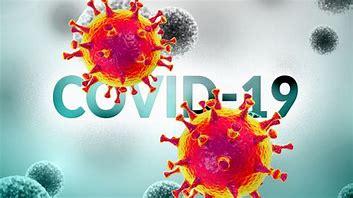Cargill was open and honest with local health officials and regulators about the virus in the plant, says Sullivan.
沙利文说,嘉吉对当地卫生官员和监管机构开诚布公地对待工厂中的病毒。
Having gained experience with coronavirus in China, he says,
他说,获得了中国对抗新冠病毒的经验后,
the company was early to implement fever screening and other "best practices" across North America to protect workers.
该公司很早就在北美实施了发热筛查和其他“最佳做法”,以保护工人。
In Hazleton, Cargill started educating workers and staff on social distancing and took other precautions starting on March 3, says Aaron Humes, the plant's general manager.
在黑泽尔顿,嘉吉公司总经理亚伦·休姆斯说,公司从3月3日就开始让员工保持社交距离,并采取其他预防措施。
According to interviews with 32 workers, however, supervisors and nurses downplayed the virus after that,
然而,根据对32名工人的采访,在此之后公司主管和护士就淡化了病毒的情况,
telling symptomatic employees without fevers to take acetaminophen and keep working,
告诉表现出症状但为发烧的员工服用对乙酰氨基酚,并继续工作,
and ordering workers not to discuss why colleagues were disappearing from the line.
还命令工人不要讨论为什么同事会从生产线上消失。
At least 10 workers say their supervisors or infirmary staff sent them back to the line feeling sick.
至少十名工人表示,他们的主管或医务室工作人员在他们感到不舒服的情况下,让他们回到生产线去工作。
One eight-year Cargill veteran, who calls herself Anabel, says she worked the entire week of March 16 while sick.
一位自称叫阿纳贝尔的员工,她在嘉吉已经工作八年,她说3月16日那一周她都在生病,但却一直在工作。
She says her supervisor in the beef division ignored her health complaints,
她所在的牛肉部门主管并未理会她对健康状况的抱怨。
and a plant nurse gave her acetaminophen and told her to keep working because her temperature was less than 100.4F,
38摄氏度是疾病预防控制中心针对新冠病毒制定的指导性阈值。
the CDC-directed threshold for coronavirus concern.
一位工厂护士给她服用了对乙酰氨基酚,并告诉她继续工作,因为她的体温低于38摄氏度,

At one point, Anabel says, she overheard her supervisor telling the nurse he was "tired" of so many workers getting sick.
阿纳贝尔说,有一次,她无意中听到其主管告诉护士说,这么多员工都生病了,他感到厌烦。
Anabel got so weak she could hardly stand up, but she didn't leave because she didn't want points on her record from unexcused absences.
阿纳贝尔身体虚弱,几乎无法站立,但她没有离开工厂,因为她不想在自己的考勤上出现无故缺勤。
"Every time I coughed, there was someone in front of me and next to me," says Anabel, who tested positive for Covid-19 on March 24.
阿纳贝尔说,“每次我咳嗽时,我前面和旁边都有人。”她于3月24日检测出新冠病毒呈阳性。
"All my co-workers got sick."
“我所有的同事都生病了。”
The plant began screening workers for symptoms on March 25, two days after its first announced case, Humes says.
休姆斯说,3月25日,也就是公司第一次公布确诊病例的两天后,工厂开始对工人进行症状筛查。
When Benjamin arrived for what would be his last day of work on April 3,
本杰明的儿子说,4月3日,是他最后一天上班。
he told a nurse at the entrance that he had a dry cough and wasn't feeling well, his son says.
他告诉门口的护士,自己出现干咳、身体不适。
But his temperature was below 100.4, so she waved him in.
但他的体温低于38摄氏度,所以护士挥手让他进来了。
Benjamin wasn't the only person forbidden to wear his own mask.
本杰明不是唯一一个被禁止戴口罩的人,
Three other workers said they heard supervisors say masks were forbidden.
另外三名工人表示,他们听到主管说禁止戴口罩。
The reasons given varied—from only sick people should wear them, to the short supply was needed for health-care workers,
给出的理由五花八门,从只有生病的人才应该戴口罩,到短缺的口罩应该留给卫生保健人员,
to the explanation given to Benjamin a week before his fatal illness: No reason to scare people.
再到本杰明病入膏肓前一周得到的解释:没有理由戴口罩吓唬人。


